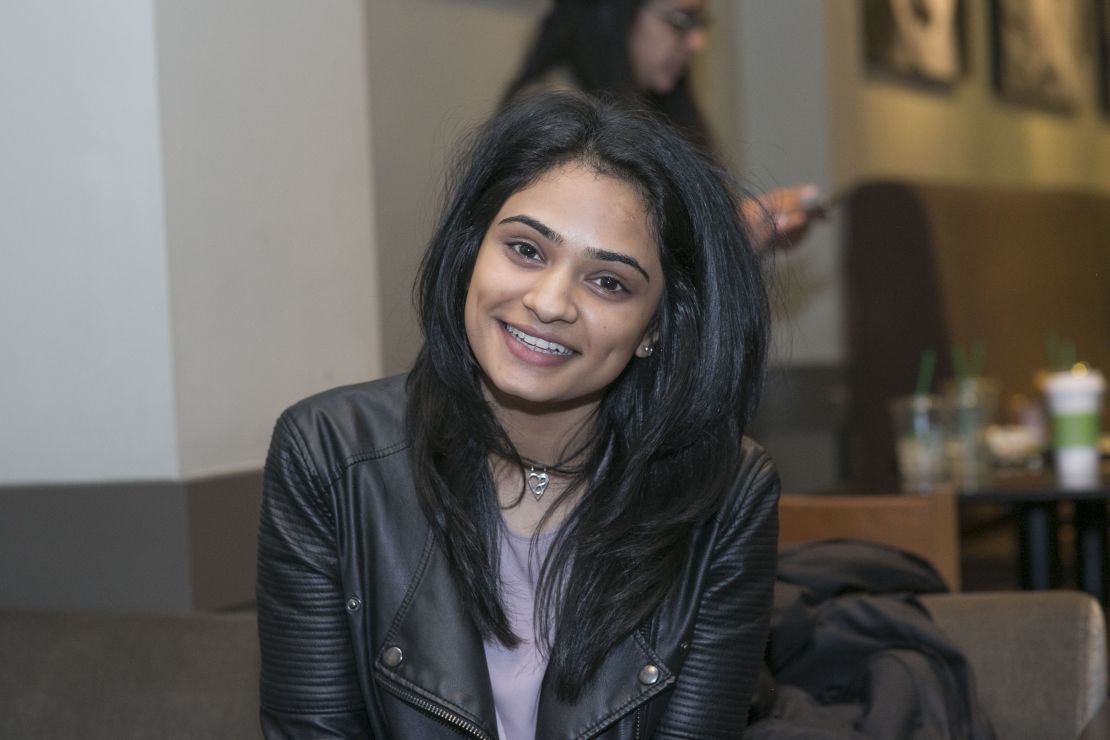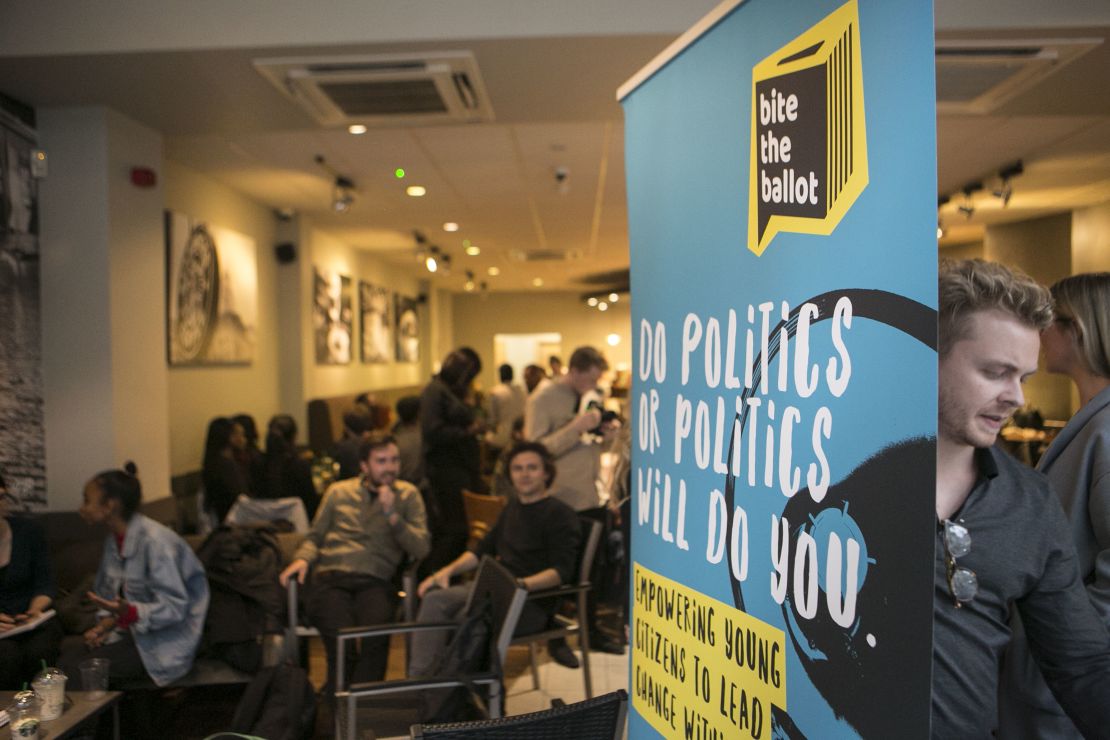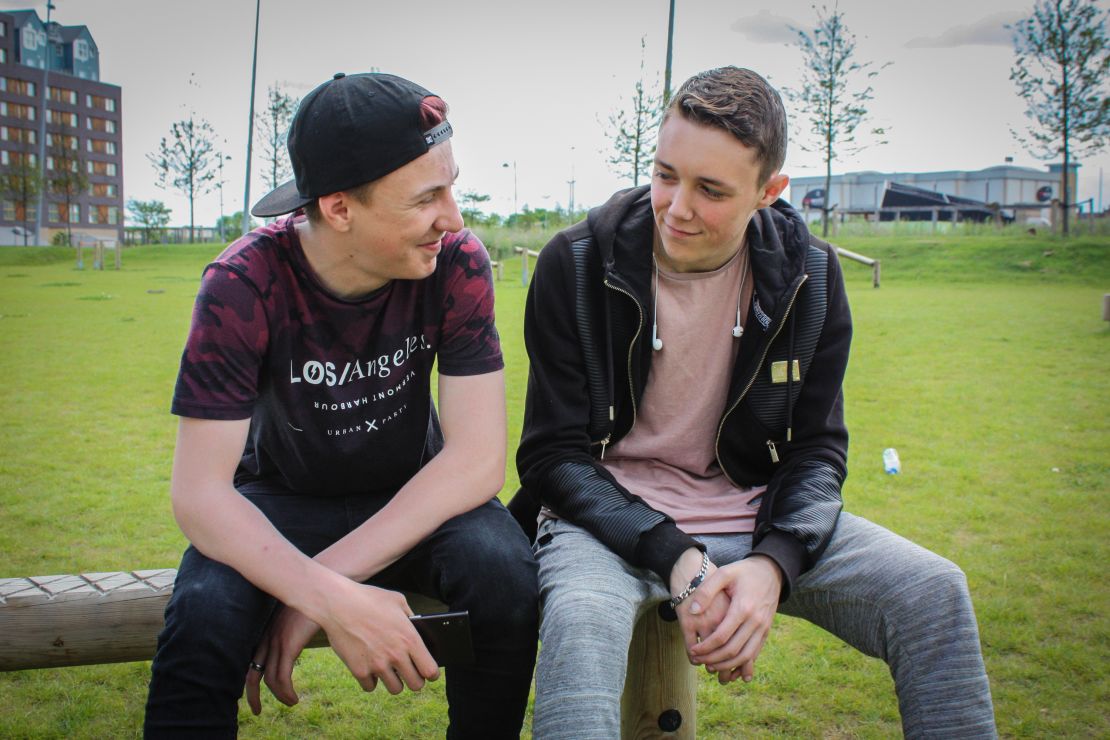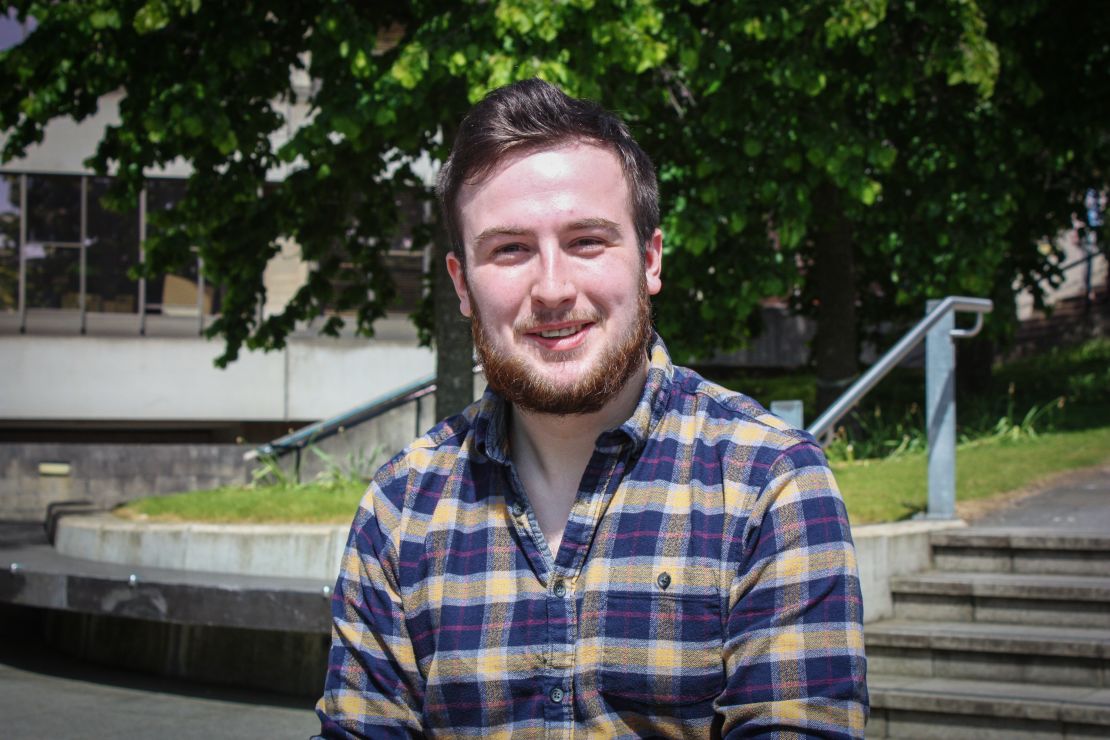Middlesbrough, England: Just over a year ago, 20-year-old Londoner Kismet Meyon was homeless. It was the second time she’d found herself without a roof over her head.
Her boyfriend gave her a place to stay, but it prompted her to think about others left without homes: “What if I was someone who didn’t have a boyfriend to go to?” she asks.
Meyon had never been interested in politics before. But her brushes with homelessness convinced her that getting involved in politics was the best way to change society. Now she’s working with other young people to influence the policies of London’s mayor Sadiq Khan and she’s studying for a degree in politics and international relations.

But she’s still frustrated.
“If I was older, my opinion would be valued with or without a degree,” she tells CNN. “Young people get a bad press … people try to say, what do you know? You’re young.”
She hopes the main opposition Labour Party – and more specifically, Jeremy Corbyn, the party’s leader – can change things. “He’s a man for the people,” she said.
On a Tuesday evening at a Starbucks in central London, Kismet is attending a Bite the Ballot event aimed at getting young people involved in politics ahead of the June 8 general election. Over free Frappuccinos and chocolate muffins, dozens of people between the ages of 16 and 25 discuss the big issues like education, the economy, and housing.

Investment banker Michael Odunlami, 22, who is sitting at the same table as Kismet and also comes from a working-class background, says he too will be voting Labour – unlike many of his colleagues.
“I haven’t felt this passionate about a leader, ever,” he said. “I remember watching Obama win in 2008 and thinking, ‘this is amazing,’ but I was too young to really understand.”
For young voters, Labour’s plans to invest in the beleaguered National Health Service (NHS) and in affordable housing, re-nationalize the Royal Mail and the railways and abolish tuition fees, which have risen to over £9,000 ($11,650) per year, are appealing.
“(Corbyn) is someone who cares for our country,” said Odunlami. “And he’s been saying the same thing for the past 20 years – screaming the same thing. He’s never ever switched sides. That’s admirable.
“I think he may cause an upset,” he said. “I hope he does.”
‘There’s a lot of distrust out there’
P
olls suggest Prime Minister Theresa May’s ruling Conservative Party still has a lead over Labour, although the gap has narrowed in recent weeks. But polls are weighted to take the expected turnout of different age groups into account, and history shows that turnout among young people is usually much lower than among older voters.
In 2015, an estimated 57% of registered voters between 18 and 24 didn’t vote, compared to just 22% of those aged 65 and over.
Apathy is often blamed. But Matt Henn, a professor in the School of Social Sciences at Nottingham Trent University, disagrees with that interpretation.
“Our research suggests that many young people don’t think participation in elections will change lives for the better,” he said. “There’s a lot of distrust out there.”
And with good reason, he says: “There’s a wealth of evidence that young people are significantly worse off than older members of the community since the global recession.
“They find themselves in a much more precarious position than previous cohorts of young people,” he said. “The housing market is much more risky, the labor market is much more short term, and there’s a massive disparity of wages between young people and older workers.”
Laurence Suddick, a teenager from Middlesbrough in northeastern England, isn’t registered to vote; he doesn’t know who the current Prime Minister is or what the political parties stand for.
The 18-year-old says he’s not apathetic, he just doesn’t trust politicians to make the changes he thinks the country and his town needs. They’re all as bad as each other, he tells CNN.

Recent graduate Henry Kyriacou is equally disillusioned. On June 8, he’s planning to spoil his ballot.
After getting a degree in electronic engineering last year, Kyriacou struggled to find a good job or an affordable place to live. Like many of his friends, he’s had to move back in with his parents.
“It’s pointless to vote for any of them,” he said. “But you have to vote, because people have died for your right to vote. If enough people do spoil their ballot, it’ll show there’s something missing from the current political scene.”
‘I just don’t want them to let me down’
For young voters backing a political party, not everyone is swayed by Labour’s message.
Brexit is topping the issue list for young Conservative voters – who are historically far fewer in number.
Twenty-year-old Amy from Middlesbrough, who declined to give CNN her last name, sees Brexit as the most important issue of the election and she trusts Theresa May to negotiate a good deal for the country.
“I think she’s quite strong,” she says. “I’ve got confidence in her.”
Unlike other younger voters, she’s not persuaded by Jeremy Corbyn.
“I don’t think that he’s a strong leader. I have no confidence in his ability to manage the economy. I don’t want to put Britain into his hands.”
The Liberal Democrats – the only party campaigning on an anti-Brexit platform – should appeal to young voters, but many still blame the party for the rise in university tuition fees.
The party promised to scrap the fees in their 2010 election campaign but, after going into coalition with David Cameron’s Conservative Party, fees almost tripled instead.
They “completely lied” about college fees, said Laura Templeman, 18, from Redcar in northeastern England.
“After screwing over students, I don’t think they’re going to get many votes,” her friend Georgia Simpson, also 18, added.
Other voters like 18-year-old Jack Sturman, who isn’t planning to go to university, are more interested in the parties’ plans to tackle low wages and contracts that don’t give workers stability.
Related: Can left-wing populism win the UK election?
After voting in favor of exiting the EU and backing the pro-Brexit UK Independence Party in previous elections, Sturman’s family will support Labour in June’s vote.
Sturman earns around £9 an hour and his uncle is on an £8 per hour contract; Labour is pledging to increase the minimum wage to at least £10 an hour (almost $13).
“If it goes up to £10, that will benefit us all,” he said. “It’ll be a big step forward.”
He worries, though, that Labour might not fulfill their promises. If they don’t raise the minimum wage, “then that’s just going to be a big let down for me and my family,” he said. “I’m going to vote for Labour, I just don’t want them to let me down.”
Getting out the vote
Countless campaigns have been at work – largely on social media – to encourage young people to register to vote and to make their voices heard on election day.
Pubs around the country have been offering free beer to anyone who has registered recently, Snapchat used a geofilter to remind UK users to register, and the hashtags #TurnUp, #GenerationVote and #Grime4Corbyn have all been used to engage potential young voters.
And they seem to have had some effect. Young people have been applying to register in huge numbers, with nearly 250,000 on May 22 alone, the registration deadline.
Since the snap election was called, over one million people under 25 have applied to register. Some may be re-registering after moving house or applying for a second time, because they’re not sure if they’re on the register. But these numbers are still encouraging.
Alex Cairns, 20, a student at Coventry University, has helped many young people to register. He set up The Youth Vote UK and has been traveling up and down the country talking to young people and encouraging them to use their vote.
“Election after election, I saw close friends not voting or with no idea what they’re voting for,” he explains. “I was frustrated by that.”
He’s talked to thousands of young people. And it’s not apathy that causes many of them to abstain, he says. “Some feel they don’t know enough and many don’t know where to find unbiased information.”
Tom Davies, 21, lives in Norwich, a small city 100 miles northeast of London, and didn’t vote in the last general election for that very reason.
“I had no idea who was good or bad, so to speak. I didn’t feel comfortable going out and voting, because the last thing you want to do is to vote for someone and then have them go out and ruin the world.”

“I also wasn’t educated enough on the subject to feel that my vote would be worthy,” Davies says.
Kismet Meyon used to feel a similar detachment from politics.
“As young people we feel disregarded,” she says. “But it’s definitely important to vote. We need to stand up and vote for a government that can change things.”


